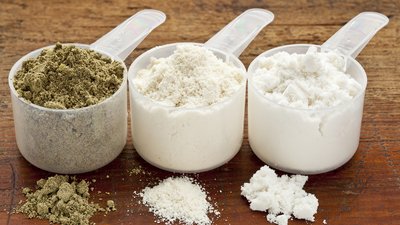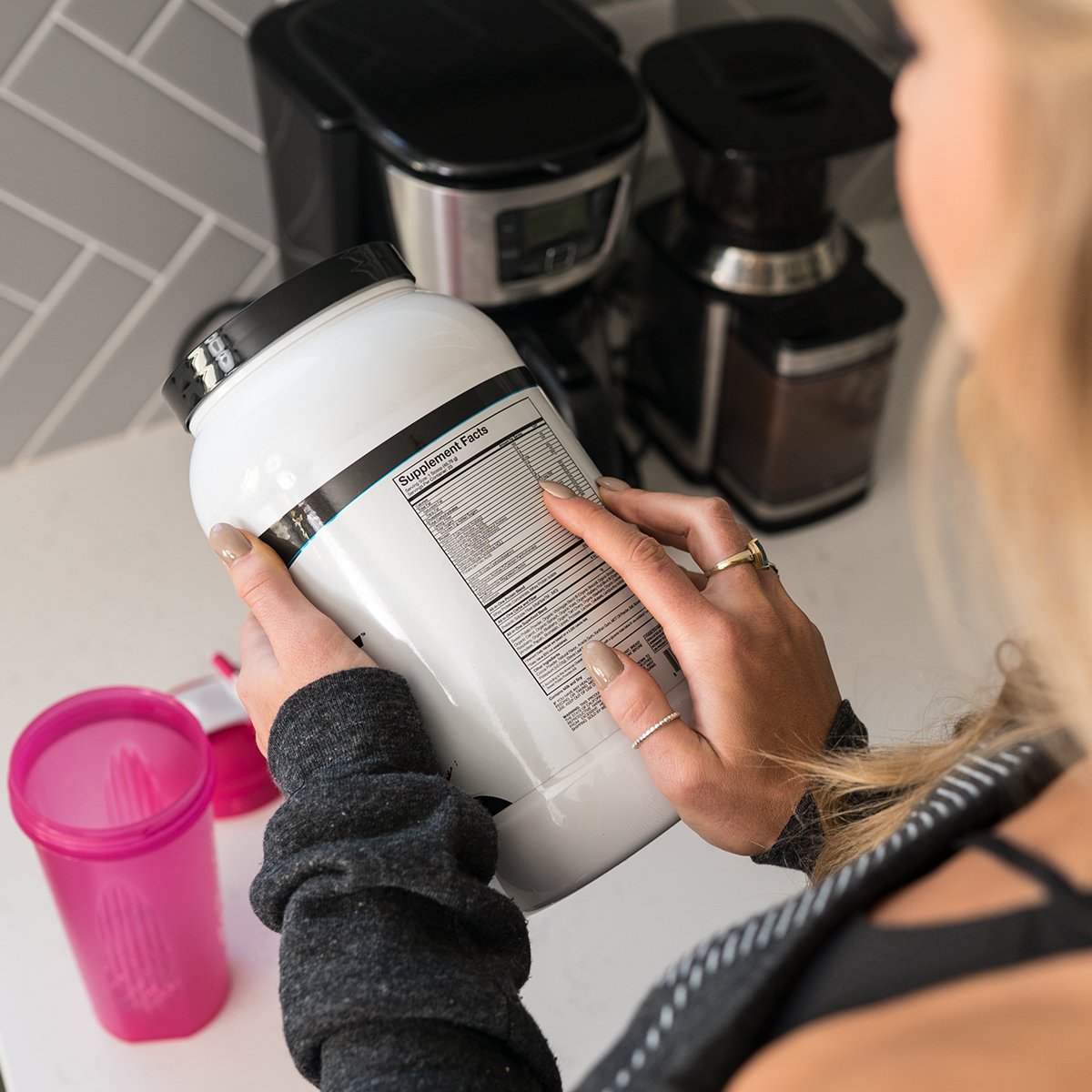Powders enable people to quickly and easily consume this essential macro, and there are varieties on the market to match almost every dietary preference, food allergy, or flavor inclination.
But as Robert Wildman, Ph.D., RD, co-author of the textbook "Sports and Fitness Nutrition," says in his article "How to Pick the Perfect Protein Powder," "Not all are created equal. There are several protein supplement types to choose from, each with their own unique aspects and potential benefits."
Whey concentrate is the most popular form of protein powder, because it's easy to find, mixes well, and gets absorbed quickly. It is usually between 70-80 percent protein, with the rest of the mass coming from carbs, fats, and moisture. It can also be used before or after exercise and as a protein-rich snack between meals.
Whey isolate has little to no fats and carbs, and is usually around 85 percent protein. It is absorbed very quickly, making it a good choice immediately before and after physical exercise. It is also usually among the lowest-calorie protein powders
Whey hydrolysate is a supplement that has been partially broken down before you drink it. Your body is able to quickly absorb it to immediately start rebuilding damaged muscle tissue.
Casein is a popular choice for a nighttime protein drink because your body absorbs it more slowly than whey. Whereas whey gets absorbed in as little as 20 minutes, casein takes more like 3-4 hours.
Milk protein isolate contains both whey and casein proteins, since both of those are present in milk. It is a common ingredient in ready-to-drink (RTD) proteins, and can help provide your muscles with amino acids both in the short term, and for several hours after you drink it.
Egg protein concentrate is a popular ingredient in blends, because it takes longer than whey protein to digest, but not as long as casein. Many athletes also get their egg protein from liquid egg whites, or of course, eggs! A medium-sized egg contains around 7 grams.


